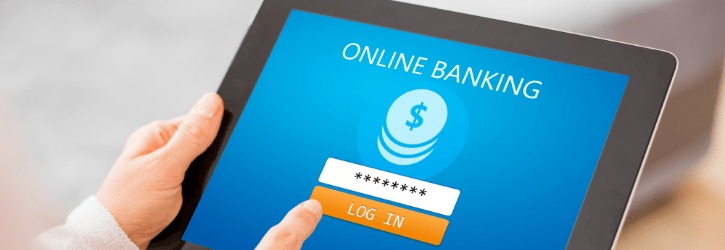
Welcome To The Data Leak Lawyers Blog
We focus on the latest news surrounding data breaches, leaks and hacks plus daily internet security articles.

We focus on the latest news surrounding data breaches, leaks and hacks plus daily internet security articles.

In many cases, victims face a heightened security risk following a data breach, leaving them with the prospect of having their information misused by cybercriminals. Regardless of the exact nature of the data exposure, it can be hard to know what to do after a data breach, and it can be difficult to protect yourself against the threats you have been made vulnerable to.
Your Lawyers, as leading specialists in data protection law, can advise you on the actions you can take to protect yourself, as far as possible, from falling victim to cybercrime. Just as importantly, we can also enable you to seek justice for any harm that you have been caused.
Every business and organisation that processes or stores personal data has an obligation to protect it to the best of their ability. As a result, when they fail to take sufficient steps to protect personal information and they consequently expose or compromise it, those affected can be entitled to pursue data breach compensation claims.

It has been reported that a Clearview AI fine in the sum of £17m is being considered by the Information Commissioner’s Office (ICO) over allegations that serious data breaches have occurred.
The issue is about the collection of public images and how they have been used by the company as part of facial recognition technology that it offers. The ICO has suggested that the processing of the public information may not be as expected by data subjects, and it may be deemed as unfair. The company disputes that they have done anything wrong and has pointed out that the images they use are already available in the public domain.
This could be a substantial fine if it is issued, and the question over whether the data processing of the information in question was lawful or not could be a contentious one.

IT system data leaks could lead to huge amounts of incredibly personal and sensitive information being leaked or exposed. Victims could be eligible to claim data breach compensation now on a No Win, No Fee basis.
We see these kinds of errors happening all the time, and it is why we represent thousands of people for cases. We are entitled – by law – to protection and safeguarding when it comes to personal information. If this is ever abused or neglected, victims have rights.
As leading lawyers, our job is to make sure that the victims can access the justice that they deserve.

In accordance with the GDPR, the General Data Protection Regulation, UK businesses and organisations have a variety of obligations they must abide by to ensure they process and store personal information appropriately. However, the nature of the business world can often mean that companies do not have sole responsibility for their data. Relationships with external partners and contractors can mean that outsiders are also granted access to private information. Where these external companies or individuals fail to protect this personal data, third-party security breaches can occur.
Many businesses are still struggling to catch up with their legal responsibilities and to update their own data protection policies, but that does not mean they can ignore the policies of their partners. In fact, it is essential that data protection is a priority in any business relationship, and companies must consider how well their partners can protect personal data before disclosing it to them.
If you have been affected by a data breach, you could be eligible to claim compensation for the harm caused, even if it was provoked by the errors of a third party. Anyone who is considering a claim can come to us for free, no-obligation advice on their case.

In the wake of a data breach, it can be difficult to know what to do to protect yourself and take action in light of the harm you may have been caused. As leading specialists in data breach claims, Your Lawyers – The Data Leak Lawyers – can advise you of your legal rights in the event that your data is compromised or exposed.
A breach of data protection law can be any incident in which a third-party data controller fails to protect private information in a way that breaches their legal obligations. In accordance with the GDPR, all businesses and organisations are required to use appropriate organisational and technical measures to keep personal information secure, and failing to do so can leave a third party liable for any harm caused to their data subjects.
Data breach claims still represent a developing area of compensation law, but Your Lawyers has been representing clients for data privacy matters since 2014. Some firms have only just begun branching out into data breach claims, but we have developed the expertise to bring our claimants the compensation they deserve.

The police service holds some of the most sensitive information about the population, including the data of many perpetrators and victims of crimes. Police domestic abuse data is among the most private information there can be, due to the safety risks it could provoke if compromised. A data breach could potentially endanger victims and they could be located by their former abusers.
The police force, like any other data controller, is obliged to protect information in accordance with the GDPR, the primary data protection law in the UK. However, there have, unfortunately, been cases in which unacceptable breaches of privacy have occurred, affecting the information of victims of domestic abuse.
Most of us would expect the police to be fully aware of its responsibilities to maintain strong data security, but it seems data protection is still not a high enough priority or focus in some cases. Where mistakes are made, those responsible must be held accountable, and those affected should be fairly compensated for any harm caused. If you have fallen victim to a data breach at the hands of the police, you can contact us for free, no-obligation advice on your potential compensation claim.

Data exposure can cause severe stress and anxiety to those affected, and it can also have a material impact. Many people may not be aware of just how close the cause-and-effect relationship between data breaches and online fraud can be. In fact, there are fraudsters stealing millions every year with the help of stolen information.
Due to the developments of the digital age, technology can now provide a means for fraudsters to expand their practices and develop more sophisticated ways of stealing from victims. Their greatest asset is arguably the wealth of data stores kept by many modern businesses, who take extensive personal details from their employees and customers. If the security of this information becomes compromised in any way, it could equip fraudsters with personal details that allow them to easily and effectively target their victims.
Your Lawyers, as leading, specialist Data Leak Lawyers, has represented many clients who have fallen victim to fraud in the wake of data breaches. If you have been impacted in this way, you may be eligible to claim compensation from those who exposed your information to misuse. Simply contact our team for more information on your potential claim.

The recently reportedly Acorn Stairlifts cyberattack appears to have been an attempt to break into the company’s systems using malware, media reports confirm.
It is not yet known as to whether any information has been exposed or stolen, but the systems that were affected are understood to be back working again.
This is yet another cyberattack that has caused huge disruption, which is a growing trend and has been especially prevalent during the COVID-19 Pandemic.

There has been a Wealden Council data breach incident that is understood to have allowed a resident to access the private and personal information of other people.
Due to what appears to be an access error, some particularly personal and sensitive information has ended up exposed. The council has apologised for the incident but, for those affected, the damage may already have been done.
Your Lawyers, as leading Data Leak Lawyers, see these kinds of events all the time, and we are more than used to representing the victims for compensation cases.

Data breaches can come with a range of different security risks, some of which can make victims vulnerable to financial loss. When a data breach exposes customer billing information, this risk can be even more pronounced, as the details could give cybercriminals direct access to credit cards or bank accounts.
As such, it is highly important that companies store customer payment information securely, and only retain details where absolutely necessary, or where the customer has given express permission for the information to be recorded. If they fail in any of these duties, they could be at fault should an unauthorised third-party gain access to this information.
If you have had any payment information exposed in a data breach, you will probably know how stressful it can be to have the threat of financial crime looming over you. While it can be hard to trace the perpetrators of online theft and fraud, it can be less difficult to punish the data controller responsible for exposing your information. A data breach claim can give victims the opportunity to see that justice is done.
EasyJet admits data of nine million hacked
British Airways data breach: How to claim up to £6,000 compensation
Are you owed £5,000 for the Virgin Media data breach?
Virgin Media faces £4.5 BILLION in compensation payouts
BA customers given final deadline to claim compensation for data breach
Shoppers slam Morrisons after loyalty points stolen
Half a million customers can sue BA over huge data breach
Lawyers accuse BA of 'swerving responsibility' for data breach
The biggest data breaches of 2020
Fill out our quick call back form below and we'll contact you when you're ready to talk to us.